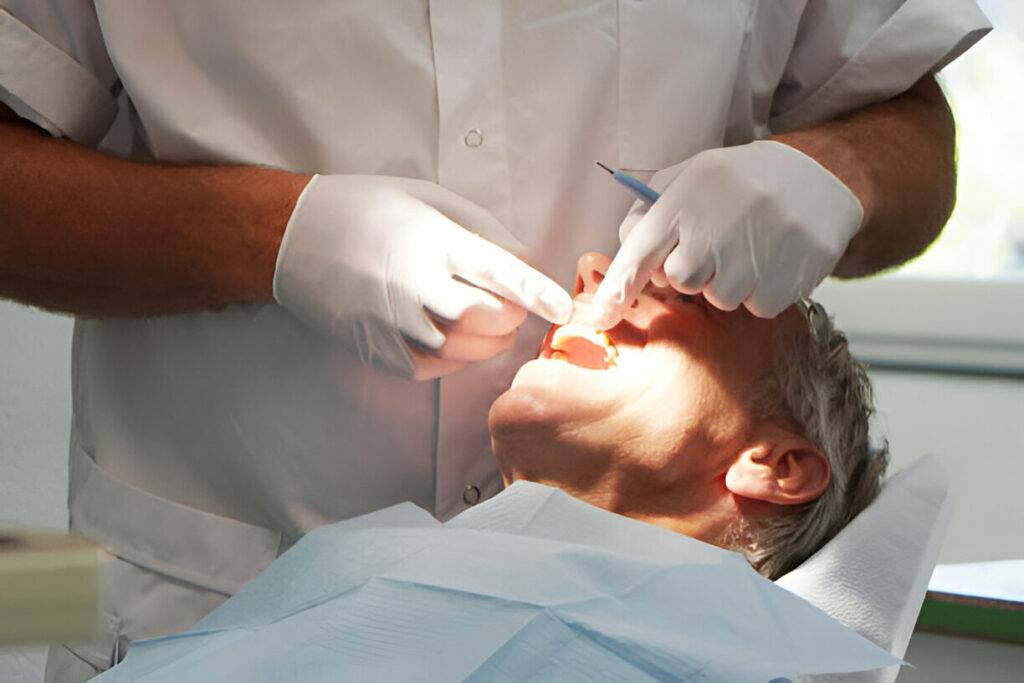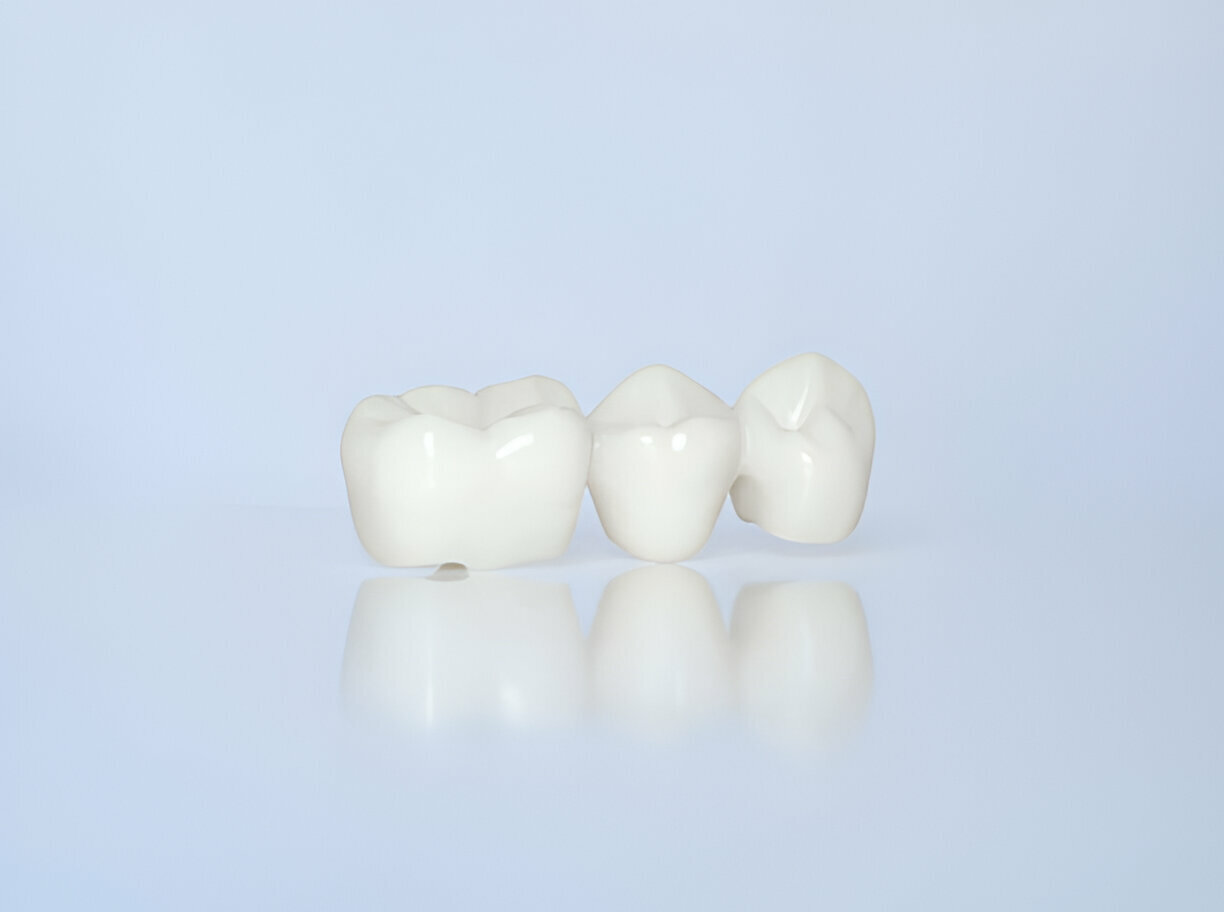Summary:
Dental crowns are a cornerstone of restorative dentistry, offering more than an aesthetic upgrade. They are crucial in strengthening weakened teeth, protecting against further damage, and restoring full function. Whether dealing with tooth decay, cracks, or post-root canal recovery, crowns ensure durability and longevity. At Grant D. Ringler, DDS, we specialize in dental crowns in Hutchinson, Kansas, using advanced materials and techniques to provide seamless restorations. In this blog, we’ll explore their benefits, types, and the process of getting one.

Understanding Dental Crowns: What Are They and How Do They Work?
Imagine your tooth as a castle tower—over time, wear and tear, cavities, or trauma can weaken its structure. A dental crown acts as a protective shield, restoring strength and preventing further damage.
A dental crown is a custom-made cap that fits over a damaged or weakened tooth, reinforcing it while maintaining a natural look. These crowns are typically made from various materials, including porcelain, metal, and ceramic, allowing durability and aesthetic appeal. Hutchinson, Kansas, dentists often recommend crowns when a tooth has suffered extensive decay, has a large filling, or has undergone root canal treatment.
Fun Facts About Dental Crowns
- The first dental crowns were made over 4,000 years ago using gold and animal bones!
- Over 15 million people in the U.S. have crowns or bridgework
- Modern-day crowns can last anywhere between 10 to 15 years with proper care
Key Benefits of Dental Crowns
1. Restores Strength and Function
A weakened tooth can make simple activities like chewing and speaking difficult. Dental crowns reinforce the tooth structure, restoring its ability to function just like a natural tooth.
2. Prevents Further Tooth Damage
Once a tooth is compromised, it becomes more susceptible to fractures and decay. Crowns serve as a protective barrier, preventing further deterioration.
3. Enhances Aesthetic Appeal
Crowns provide an excellent cosmetic solution for those with discolored or misshapen teeth. They blend seamlessly with natural teeth for a flawless smile.
4. Supports Other Dental Work
Crowns are essential for supporting dental bridges and covering dental implants, ensuring the longevity of other dental restorations.
5. Improves Oral Health
By restoring damaged teeth, crowns help maintain the alignment of surrounding teeth, reducing the risk of further dental issues.
Types of Dental Crowns: Which One is Right for You?
1. Porcelain Crowns
Porcelain crowns are popular due to their natural appearance. They are ideal for front teeth and provide an aesthetically pleasing solution.
2. Metal Crowns
Made from gold or metal alloys, these crowns are highly durable and withstand heavy chewing forces. They are commonly used for molars.
3. Porcelain-Fused-to-Metal (PFM) Crowns
These crowns combine the strength of metal with the aesthetic appeal of porcelain, making them a versatile option.
4. All-Ceramic Crowns
Ceramic crowns offer the best of both worlds: durability and a natural look. They are an excellent choice for patients with metal allergies.
The Process of Getting a Dental Crown
If you have a damaged or weakened tooth, a dental crown can help restore its strength, functionality, and appearance. Here’s a step-by-step guide to what you can expect when getting a dental crown in Hutchinson, Kansas:
Step 1: Initial Consultation
Your journey to a healthier smile begins with a comprehensive dental examination. Your dentist will assess the condition of your tooth using X-rays and a visual inspection to determine if a crown is the best solution. This is also an opportunity to discuss your options, including the type of crown material that best suits your needs—porcelain, ceramic, metal, or a combination.
Step 2: Tooth Preparation
Before placing a crown, the affected tooth needs to be reshaped to create a secure foundation. This process involves removing any decayed or damaged portions and sculpting the tooth to ensure a snug fit for the crown. If the tooth has a significant structural loss, a filling may be used to build it up before placing the crown. To protect your tooth while your permanent crown is being fabricated, a temporary crown is placed, allowing you to eat and speak normally.
Step 3: Custom Crown Creation
Your dentist will take digital impressions of your prepared tooth to ensure the new crown fits seamlessly with your natural bite. These impressions are then sent to a dental lab, where skilled technicians craft your crown precisely, matching your natural teeth’s shape, size, and color. The customization process can take a few days to a couple of weeks, depending on the type of crown.
Step 4: Placement and Fitting
Once your permanent crown is ready, your dentist will remove the temporary crown and carefully place the new one to check its fit and alignment. Any necessary adjustments will be made to ensure comfort and a natural bite. When everything looks and feels perfect, the crown is permanently cemented, restoring your tooth’s function, strength, and aesthetics.
After the procedure, you’ll receive guidance on how to care for your crown, including proper oral hygiene practices and what foods to avoid to extend its longevity. With good care, your dental crown can last many years, helping you maintain a healthy and confident smile.

Caring for Your Dental Crown
- Maintain good oral hygiene by brushing twice a day and flossing regularly
- Avoid hard or sticky foods that can damage or dislodge the crown
- Schedule regular dental check-ups to monitor the condition of your crown
- Use a nightguard if you grind your teeth to protect the crown from excessive wear
Key Takeaways
- Dental crowns in Hutchinson, Kansas, play a crucial role in restorative dentistry, offering protection, functionality, and aesthetics.
- Crowns come in various materials, each catering to specific needs and preferences.
- The procedure involves assessment, preparation, crown fabrication, and placement.
- Proper care and maintenance ensure longevity and optimal performance.
- Seeking professional guidance from Hutchinson Kansas dentists ensures the best results.
If you’re considering a dental crown, consult Grant D. Ringler, DDS, today for expert advice and high-quality restorative care!

